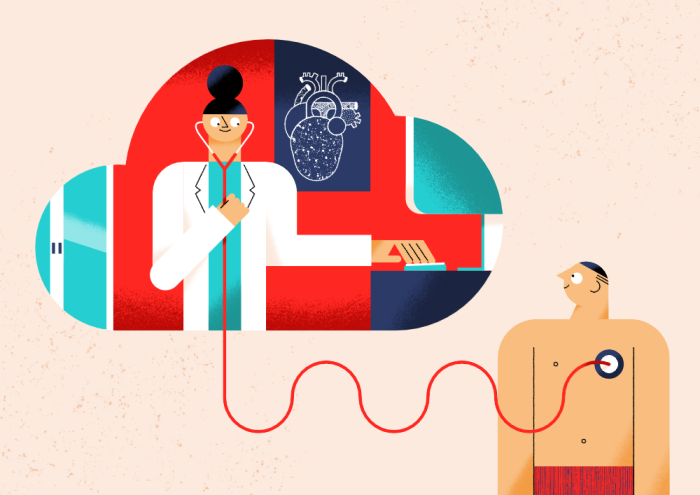The cloud is increasingly embraced in the healthcare market – in Germany
and elsewhere.
Benefits are convincing and include AI applications in cardiology
Cloud Computing is a major trend in the context of IT. This technology comes with major advantages that have helped its penetration in various sectors of the economy. In healthcare too cloud technology is on the advance. The COVID-19 crisis with positive examples of its application has added thrust. Germany, with its legacy of reluctance to embrace the cloud due to data privacy considerations, is also witnessing significant progress.
In today’s care providing, IT is an indispensable toolset – and everybody has been aware of its importance for years now. Increasingly, patient documentation is created electronically. IT support for clinical and administrative processes enhances productivity, quality, and patient safety. IT’s key role becomes most obvious at – rare times when IT systems are out of service.
How can this important value contribution of IT be pushed even further? Let’s stop storing and accessing data locally, and instead use decentralized network structures for this purpose – that’s what the cloud (also still known as software as a service) enables us to do. The cloud makes us independent from local IT infrastructures and allows for the outsourcing of storage and computing capabilities as well as applications.
The cloud offers major advances over conventional IT
What makes the cloud attractive is, in particular, the increase in efficiency: data, applications, and IT services can be outsourced securely, analyses can be run in the cloud… all of which helps to reduce the footprint and the use of staff resources on-site. Flexibility and scalability are pros for the cloud, as well as savings on investments.
Drivers for acceptance
Reservations regarding the cloud, in particular in Germany, have been mostly based on issues such as data privacy and information safety. The European General Data Protection Regulation (GDPR) with its strict requirements has contributed a lot to overcome reluctance in healthcare with its top-safety category of personal data – patient information. In addition, the COVID-19 crisis has pushed into the limelight the benefits of that technology for routine in care: it enables access to patient data independently from time and location and thus enhances communication between all stakeholders in the treatment chain. It has allowed for ICU bed scheduling across geographies, and it brought together big data with artificial intelligence (AI) to support precise diagnostics in the individual patient case.
Demonstrating success: the cloud enables AI in cardiology
In numerous medical disciplines, the practical benefits of the cloud have turned into reality in clinical processes even before COVID-19. Cardiology is an excellent example: here, this technology has made possible remote long-term monitoring – which is hard to achieve on-site at the hospital.
Many long-term ECGs, e.g. at the cardiology department in the Swiss hospital at Interlaken, aim at detecting atrial fibrillation (AF, or Afib) after a cerebrovascular event. Cardiomatics, an innovative technology manufacturer based in Poland, offers a powerful analysis service for 7-day and Holter ECGs – based on the cloud. The fully automated, high-quality analysis uses data from the ECG recorder. Cardiologists quickly receive an easy-to-read report to base their diagnosis on.
The implementation of the solution in Interlaken and in many other hospitals was smooth – thanks to the support by Cardiomatics. “We developed our solution with the aim of making integration as seamless as possible”, underlines Rafał Samborski. “The entire platform is web-based, and no installations are necessary at the client site. The communication between the hospital and our servers is encrypted”, the Cardiomatics CEO goes on to explain. “We use the most up-to-date cloud technologies to warrant the safety and privacy of patient data.” – Thanks to the cloud-based approach, the full solution went live and became part of the daily routine in Interlaken after only a few days.
Until today, Cardiomatics has been analyzing thousands of hours of ECG recordings for that hospital in the Swiss Alps. Samborski and his team are glad to deliver a reliable service which is valuable to hundreds of patients from this and further hospitals, also in Germany and many other countries. Resulting data allows for the continuous optimization of the system – requiring no resources on-site thanks to the cloud approach.

